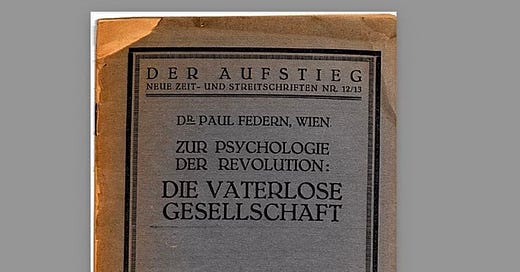I keep coming back to the problem of the birth of the superego in Freud’s work. Why did he move from identification (1920) and the death drive (1921 ) to the conceptualization of the superego (1923)?
Clearly, there are at least two explanations: one is the role of new social revolutions, from the 1917 Bolshevic revolution to the German and Hungarian attempts; and the second is the problem of social authority. The superego is Freud’s answer to revolutions and the dissolution of authority, but it is a paradoxical one: it postulates an authority that is based on a contradiction. The superego involves both the urge to discipline and supress and the capacity to overthrow it.
Here are some basic readings for further study:
Freud’s group psychology; the Es and the Ich; and beyond the pleasure principle;
Etienne Balibar’s “The invention of the superego”;
Carolyne Dean’s “The self and its pleasures”
and the article above, Paul Federn, “The society without fathers” 1920.




